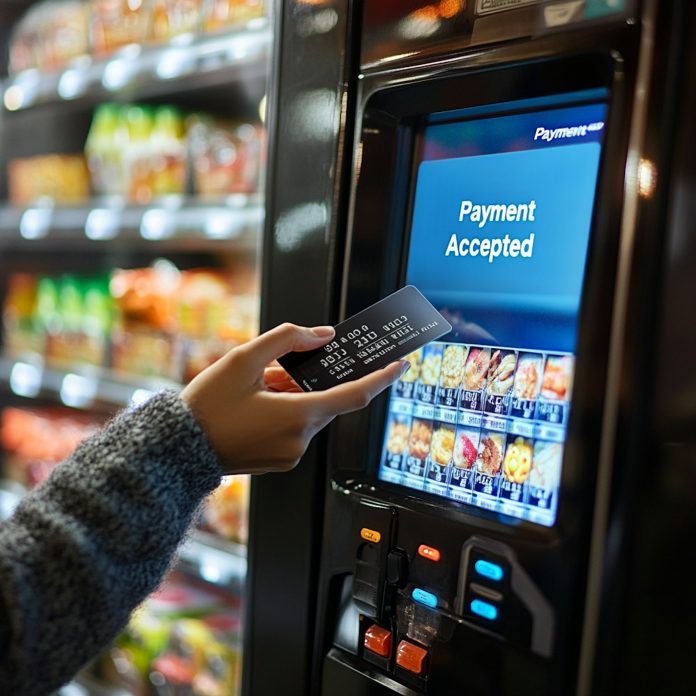In a bold move toward retail innovation, British supermarket giant Asda is pioneering new technology with the introduction of self-service returns kiosks and automated vending machines for age-restricted items. The pilot program, taking place at its Ashton-under-Lyne location in Greater Manchester, represents Asda’s response to evolving consumer expectations for speed, convenience, and control. With self-service options gaining traction globally, this trial could be a key turning point for Asda—and potentially for the retail industry at large.
The Self-Service Revolution: What Asda is Testing
Asda’s pilot program incorporates two novel retail technologies. First, self-service returns kiosks enable customers to initiate and complete their returns independently. To use the kiosks, customers scan their receipts, select the items for return, and deposit them into designated bins, effectively removing the need to interact with customer service personnel. This is particularly appealing for customers with busy schedules who appreciate the time saved and streamlined returns experience (The Sun).
Additionally, Asda is trialing automated vending machines for age-restricted products such as tobacco and vaping items. At these machines, customers can make their selections, pay at the self-checkout, and retrieve their purchases following age verification by a staff member. This process balances convenience with regulatory compliance, offering a controlled yet efficient way for customers to buy restricted products.
Addressing Key Industry Challenges
Asda’s investment in these technologies comes at a time when retailers worldwide are grappling with high labor costs, labor shortages, and rising consumer expectations. Automated solutions provide a clear advantage by helping to minimize labor demands for routine tasks, freeing employees to focus on more complex responsibilities such as customer assistance and inventory management.
Furthermore, in an age of heightened digital literacy, consumers have grown increasingly comfortable with self-service solutions in other areas of their lives, from banking to travel. Retailers are now catching up, driven by both consumer demand and the need to optimize operations. Automated returns and vending machines are just one aspect of this larger shift (Capgemini Consumer Report).
Enhancing the Customer Experience Through Automation
Reducing wait times is one of the most pressing demands of today’s retail customers. According to a recent survey by Capgemini, over 70% of consumers consider fast, convenient service a critical factor in their purchasing decisions (Capgemini Report). By introducing self-service kiosks for returns, Asda not only meets this demand but also enhances the in-store experience, positioning itself as a customer-centric brand.
The age-restricted vending machines also offer value in terms of privacy and efficiency. While maintaining strict regulatory compliance for age verification, these machines eliminate potential discomfort associated with purchasing sensitive items. The system allows a streamlined transaction where the customer verifies their age without drawing unnecessary attention.
Industry Reactions: What Retail Experts Are Saying
Retail experts see Asda’s initiative as part of a broader trend towards automation in brick-and-mortar stores. Stuart Higgins, a retail analyst at BearingPoint, explains that “self-service technology is no longer a novelty but a necessity.” He adds, “Retailers must adapt to stay competitive in a rapidly changing market where consumers value their time and are often looking for self-managed options” (BearingPoint Analysis).
Experts also emphasize that the convenience brought by automation does not equate to diminished human interaction. Rather, it enables employees to allocate their efforts to areas where human touch adds significant value. Asda, for example, retains staff for tasks like age verification in the automated vending system, ensuring compliance while allowing for seamless customer interactions.
Learning from Global Pioneers: Who Else is Adopting Automation?
Asda is not alone in its pursuit of automation. Walmart, Asda’s former parent company, has experimented with similar self-service returns systems through its “Mobile Express Returns” initiative. This system allows customers to return items via the Walmart app, saving time at customer service counters. Meanwhile, Amazon’s cashierless “Amazon Go” stores represent another cutting-edge application of automation in retail, where AI-driven sensors track purchases and enable customers to skip checkout lines altogether.
The Asda initiative, however, is unique in its targeted use of automation to manage both returns and regulated purchases. This distinction reflects an adaptive approach that addresses Asda’s specific operational needs and customer demographics.
Potential Roadblocks and Considerations
Despite the clear advantages, automated systems come with their own set of challenges. Installing and maintaining these technologies requires substantial investment in hardware, software, and training for staff. Moreover, system malfunctions can lead to customer dissatisfaction, especially if shoppers are left waiting for staff to fix issues or override machines.
Data security is another area of concern. As self-service technology relies heavily on customer data and transaction tracking, retailers must ensure robust cybersecurity measures to prevent data breaches and protect customer information. Retailers also need to navigate local and national regulations carefully to avoid compliance risks, particularly with age-restricted products.
Looking Ahead: The Future of Self-Service in Retail
Asda’s experiment could set a precedent for retailers globally, especially if the pilot proves successful and expands to additional stores. The initiative reflects a broader trend of enhancing the in-store experience through automation. As traditional retail evolves to meet the needs of digital-savvy consumers, self-service technology could redefine how we interact with physical stores.
Industry observers are keen to see how Asda’s pilot progresses, as it may encourage other major retailers to adopt similar solutions. As customers increasingly favor fast and convenient shopping experiences, the integration of self-service solutions may soon be seen not as a luxury, but as an expectation.
This evolution raises exciting questions about the role of physical retail spaces in the digital age. Asda’s trial may be an early indicator of where the industry is headed, blending traditional store experiences with cutting-edge technology to meet the needs of the modern shopper.


